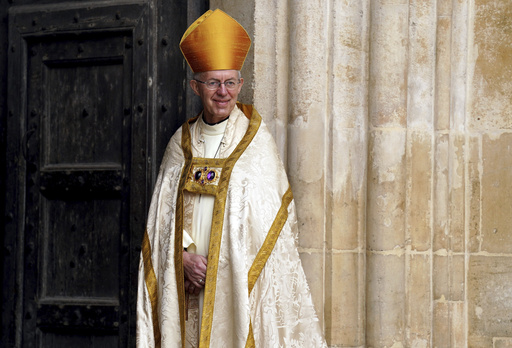
LONDON — The sole Church of England bishop to call for the resignation of former Archbishop of Canterbury Justin Welby expressed on Wednesday that his exit does not address the church’s significant failures in protecting vulnerable individuals or alleviate the pain experienced by abuse victims.
Welby, age 68, resigned on Tuesday following an independent review that accused him of not reporting instances of continuous physical and sexual abuse carried out by a volunteer at Christian summer camps. This oversight allowed the perpetrator to continue abusing boys and young men for five more years, according to findings disclosed in the Makin Review released last week.
Helen-Ann Hartley, the Bishop of Newcastle, acknowledged that while Welby’s resignation was warranted, it does not rectify the institution’s alarming shortcomings. Her sentiments resonated with those of abuse survivors and at least one high-ranking government official.
“This resignation fails to address the church’s significant shortcomings in safeguarding and the continued suffering of victims and survivors of church-associated abuse, nor does it absolve others whose negligence is highlighted in the Makin report,” Hartley remarked in her statement.
The process of finding a successor for Welby is expected to take several months, leaving uncertainty in the leadership of the church.
Welby’s departure has caused upheaval within the church and prompted responses across the globe. As the leader of the Church of England and a figurehead of the worldwide Anglican Communion—comprising more than 85 million members in 165 countries, including the Episcopal Church—his resignation has significant implications. While individual national churches have their leaders, the Archbishop of Canterbury is regarded as the foremost figure among them.
Before the abuse scandal, Welby was already a polarizing figure. A former oil executive who transitioned to priesthood in 1989, he became known for his conflict resolution efforts in Nigeria and other regions in Africa. However, he found it challenging to unify the Anglican Communion amid diverging opinions on topics like LGBTQ+ rights and women’s roles within the church.
Recently, the Church of England publicly shared the findings of an inquiry into John Smyth, a well-known attorney accused of sexually, psychologically, and physically abusing around 30 boys and young men in the UK and 85 in Africa from the 1970s until his passing in 2018. The comprehensive report revealed that Welby did not report Smyth’s abuses to the authorities after being informed in August 2013, shortly after taking office as Archbishop. If action had been taken sooner, many victims may have been spared.
The Church of England had first received allegations regarding Smyth in 1982, following a separate investigation into his conduct. The Makin Review asserted that those who received this earlier report actively concealed its findings from becoming public.
Mark Stibbe, one of the victims of Smyth, commended Welby’s decision to resign but emphasized that this should not be the end of accountability. He expressed to Channel 4 that the survivor community advocates for further resignations to encourage responsible action among those who remained silent when they ought to have raised their voices.
Initially, Welby resisted resigning, claiming that he believed police were already investigating Smyth and that he should not interfere. Nevertheless, he accepted responsibility for not pursuing the allegations with the urgency they deserved. Upon announcing his resignation, Welby remarked that the investigation had uncovered a “long-maintained conspiracy of silence” regarding Smyth’s abuse.
“With my resignation, I hope to clearly demonstrate the Church of England’s commitment to real change and our pledge to ensure a safer environment for all,” Welby stated. “I step down with sorrow for all victims and survivors of abuse.”
Supporters of Welby contend that he played a crucial role in transforming the culture within the church and in allocating more resources towards protecting abuse victims. Speaking in a personal capacity, Health Secretary Wes Streeting noted that substantial and deep-rooted challenges remain for church leadership to tackle.
“As an Anglican, I sincerely advise my fellow church leaders: don’t assume that one resignation resolves the underlying issues,” he conveyed to the BBC.
According to Hartley, despite some progress in the church’s safeguarding culture, challenges persist due to the arrogance of a few individuals. She stated, “Now is the time for meaningful discussions around honesty, trust, transparency, independence, and accountability concerning safeguarding within the Church of England. I wholeheartedly welcome this opportunity.”
